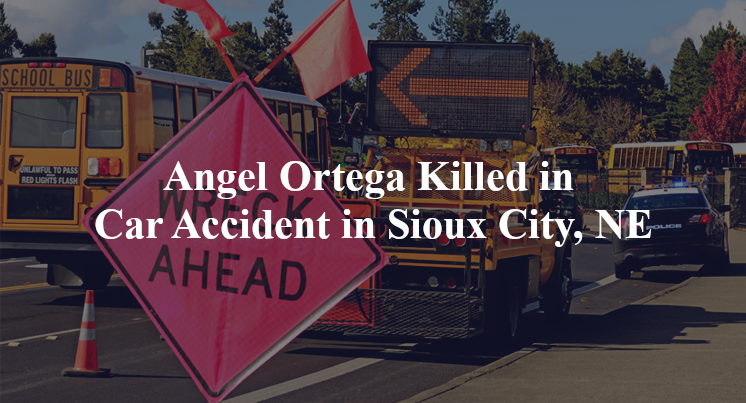Angel Ortega Killed in Car Accident in Sioux City, NE
Sioux City, NE — January 11, 2025, Angel Ortega was killed following a car accident that occurred at around 9:40 P.M. on Highway 20.

An investigation is underway into a car accident that left one person dead during the nighttime hours of January 11th. According to official reports, Angel Ortega was operating a Jeep Cherokee in the eastbound lanes of Highway 20 when for unknown reasons the vehicle lost control and left the roadway and went down a hill, rolling several times in the process.
When first responders arrived on the scene they found that Ortega had sustained critical injuries and transported him to the hospital for treatment, however he later succumbed to his wounds and was pronounced deceased. At this time authorities are investigating what events unfolded that caused the vehicle to lose, and more details of this accident may be released in the future.
Commentary by Attorney Michael Grossman
When reviewing an accident like the one on Highway 20, where a single-vehicle rollover resulted in a fatality, it’s essential to conduct a thorough investigation to understand the circumstances. Accidents of this nature are often more complex than they initially appear, and answering key questions is vital to uncovering what happened and why.
First, did the authorities thoroughly investigate the crash? Single-vehicle accidents require detailed analysis to determine whether external factors contributed. Investigators should examine the roadway conditions, including potential hazards like debris, poor lighting, sharp curves, or adverse weather. Documenting evidence such as skid marks, the vehicle's position, and the trajectory leading to the rollover is essential. Witness statements or nearby surveillance footage can also provide valuable context. A comprehensive investigation ensures no detail is overlooked and helps clarify the sequence of events.
Second, has anyone looked into the possibility that a vehicle defect contributed to the crash? Rollovers and loss of control can sometimes result from mechanical failures or design issues in the vehicle. For example, problems with tires, suspension systems, or steering mechanisms could have played a role. It’s important to investigate whether the vehicle involved had any known defects or recalls that might have contributed to the crash. Preserving the vehicle for a forensic examination is critical to identifying potential mechanical or design flaws that could otherwise go unnoticed.
Third, has all the electronic data relating to the crash been collected? Modern vehicles are equipped with electronic control modules (ECMs), which store data about speed, braking, and steering inputs in the moments leading up to an accident. This information can provide critical insights into the cause of the crash, whether it was related to driver actions, mechanical issues, or external factors. In addition, nearby traffic cameras or dashcams may offer further evidence about what transpired. Collecting and preserving this data promptly is essential to ensure a full understanding of the incident.
Determining the cause of this accident is important not only for addressing questions from those affected but also for identifying any safety concerns that might prevent similar incidents in the future. By addressing these three critical questions—ensuring a thorough investigation, exploring the possibility of vehicle defects, and securing all relevant data—we can work toward a complete and accurate understanding of the events and provide clarity for all involved.

*We appreciate your feedback and welcome anyone to comment on our blog entries, however all visitor blog comments must be approved by the site moderator prior to showing live on the site. By submitting a blog comment you acknowledge that your post may appear live on the site for any visitors to see, pending moderator approval. The operators of this site are not responsible for the accuracy or content of the comments made by site visitors. By submitting a comment, blog post, or email to this site you acknowledge that you may receive a response with regard to your questions or concerns. If you contact Grossman Law Offices using this online form, your message will not create an attorney-client relationship and will not necessarily be treated as privileged or confidential! You should not send sensitive or confidential information via the Internet. Since the Internet is not necessarily a secure environment, it is not possible to ensure that your message sent via the Internet might be kept secure and confidential. When you fill out a contact or comment form, send us an email directly, initiate a chat session or call us, you acknowledge we may use your contact information to communicate with you in the future for marketing purposes, but such marketing will always be done in an ethical way.